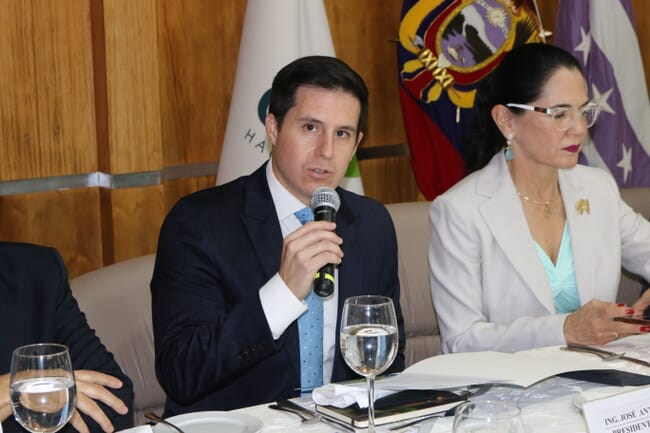
Camposano says that ending the diesel subsidies will be counterproductive as shrimp producers make vital contributions to the national economy
Last week’s announcement will exclude shrimp farms of over 30 hectares from national fuel subsidies in a bid to divert more funding to the poor, following widespread unrest in the country.
However, the shrimp sector has calculated that excluding them from the subsidies will increase its production costs by 16 cents per pound, which will seriously affect its competitiveness and even put producers at risk of bankruptcy, due to the decline in international shrimp prices.
According to the National Chamber of Aquaculture (CNA), the decision, which affects 82 percent of the national shrimp production, could put many of the sector’s 275,000 jobs at risk.
“Our productive chain pays hundreds of millions of dollars in taxes and contributions. However, our workers do not receive public health care and it is up to employers to assume that additional cost. The same happens with road infrastructure, inefficient public services that cost us hours of work and insecurity that, although being the exclusive responsibility of the Government, our sector must fight with private resources that exceed $80 million per year. So, who ends up subsidising whom?” asked José Antonio Camposano, executive president of the CNA, in a statement.
Elaborating on the crucial role played by the shrimp sector, which is the country’s most important export sector after oil, Camposano highlighted the contribution shrimp production makes to government laboratories, and the domestic soy market – noting that buying local soy costs them 50 percent more than buying it in from abroad.
He also flagged up the folly of ending the diesel subsidy given the poor access to electricity, as government plans to extend the provision of the electricity network are still far from complete.



